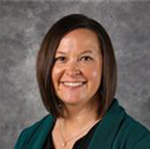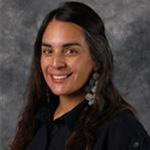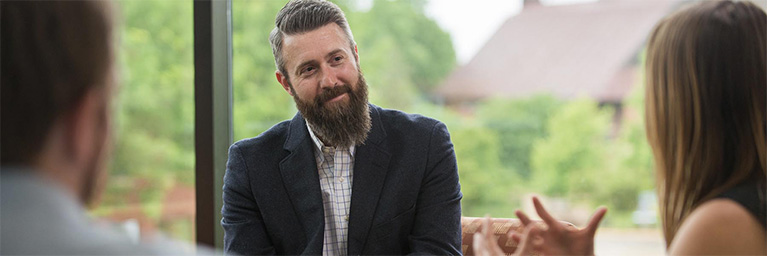
Graduate Programs
Clinical Mental Health Counseling Program
Bethany’s Graduate Programs Department oversees the Clinical Mental Health Counseling program along with related coursework.
A Letter from the Director
We created this program to meet the real need in our communities to offer ethical, faith-informed, and professional counseling services to those struggling with mental health concerns. I hope that you will join us and be a part of responding to this deep need.

Online Program. Personal Connection.
The journey of becoming a professional counselor is both a joyful and challenging process. Bethany’s faculty is committed to supporting students throughout this journey.
Combining Online Flexibility with Hands-On Clinical Experience
The need for quality clinical counselors continues to grow in communities and ministries across the country. Bethany’s Clinical Mental Health Counseling Program (CMHC) provides the knowledge, skills, clinical experiences, and Christian worldview to prepare counselors for a variety of helping settings:
- Outpatient Care Centers
- Psychiatric Hospitals
- Private Practice
- Schools, Churches, Ministries
The Clinical Mental Health Counseling Program provides flexibility and an atmosphere of personal connection through the combination of online instruction and on-campus experiences.
On demand, asynchronous classes accommodate your schedule, while in-person residencies, practicum, and internships provide opportunities to practice skills, obtain hands-on experience, and connect with classmates and advisors.
Bethany’s Clinical Mental Health Counseling Program is designed to help you…
Complete your educational journey
Ready to become a mental health counselor? Bethany’s CMHC program is the next step after earning your bachelor’s degree. Upon completion of the CMHC program, you will be prepared to become nationally certified and possibly state licensed. Learn more about licensing by reviewing the CMHC section of the Professional Licensure Disclosures page.
Pursue a new career
Launch a second career in mental health counseling after a concise and concentrated two-year program of study or opt for a more flexible three-year path. You don’t need an undergraduate degree in psychology or any specific field to enroll.
Equip yourself for counseling settings
Pastors, teachers, staff ministers, and others find themselves in counseling situations every day. Taking one or more classes in Bethany’s CMHC Program can prepare you to help others with confidence.
Bethany is here to help
- 60 Credit Hours for a Master of Arts in Clinical Mental Health Counseling
- 3 On-Campus Residences and asynchronous, online courses for a flexible, yet personal educational experience
- 2-3 Year Program Study Options to fit your lifestyle and career goals
- Clinical Internship in your home community.
- Accredited by the Higher learning Commission.
- An undergraduate in any field is accepted for admission into the program.
Real Stories From Bethany Students and Faculty
I knew early in my life that I wanted to help people, and I wanted to integrate helping others with sharing the solid truth of the Gospel. My first interest […]
Why is Clinical Mental Health a passion of yours? There is a deep need for mental health care, and I want to help those who need support, so that they […]
Why is Clinical Mental Health a passion of yours? When I completed my undergraduate degree in Expressive and Therapeutic Arts at Marian University in Fond du Lac, Wisconsin, I volunteered […]
We live in a sinful world, and with that comes myriad daily troubles and temptations. I am passionate about clinical mental health because things have not always been easy for […]
Clinical Mental Health is often overlooked and stigmatized throughout the world, even though it is something everyone deals with. There is no shame in seeing a doctor for a physical […]
As a former teacher, I saw a great need for children and adolescents to receive counseling. Many are burdened by trauma, anxiety, and other issues which impede their learning. One […]
I was always drawn towards helping fields and landed on counseling, specifically in school systems, after I finished my undergraduate degree. I wanted to help adolescents who were unnoticed and […]
More Than a Degree—A Purposeful Path to Becoming a Counselor
Learn more about the Clinical Mental Health Counseling Graduate Program at Bethany Lutheran College.
Christian Foundation
All courses in the CMHC Program are taught within a Christian framework. Faculty members approach the mental health field from a Christian worldview and provide guidance on spiritual counseling situations that occur in both religious and secular settings.
Academic Excellence
Core content areas of the program are based on the Council for Accreditation of Counseling and Related Educational Programs and the national standards set by the National Board for Certified Counselors. Graduates are eligible to become nationally certified and may also be eligible to become state licensed. Learn more about licensing by reviewing the CMHC section of the Professional Licensure Disclosures page.
Personal Mentorship
Bethany’s faculty provide mentoring through regular communication, Christian encouragement, and excellence in teaching and supervision. Whether in online classes or on-campus residencies, professors create an atmosphere of connection.
CMHC Program Mission Statement
The counselor education program exists to prepare students—through a Christian worldview that applies biblical truth and rigorous scholarship within the field of counseling—to be ethical, influential, and highly competent professional counselors who serve their communities, churches, and future clients.
Learn more about the missions, vision, and values of the Clinical Mental Health Counseling Program by clicking below.
Career Opportunities
Prepare for a career as a professional counselor and serve in a variety of settings. Of the many career pathways for graduates, the following are most common:
- licensed counselor in community mental health organizations
- outpatient care centers
- residential mental health and substance abuse facilities
- psychiatric hospitals
- private counseling practices
Engage At Your Level
Continuing Education
Great for pastors and educators who want to serve their ministry and expand counseling expertise. Course work is designed to expand your knowledge of mental health and support your counseling skill development. Courses are offered online throughout the year.
Masters of Arts in Clinical Mental Health Counseling
Complete the full set of 60 credits, take part in clinical experiences and internship, and fulfill the requirements to be a in-demand practitioner in the field of Clinical Mental Health Counseling.
Program Overview
Students are prepared to be personal and confident counselors through courses that include: Counseling Skills and Strategies, Counseling Theories, Crisis Intervention, and Trauma-Informed Counseling Strategies. Additional courses in Developmental Psychology, Research and Evaluation, and Career Development will lay a solid foundation for you as a counselor-in-training.
Targeted courses to enhance your preparation as a clinical mental health counselor include Psychopathology, Clinical Intervention and Treatment Planning, Group Counseling, Foundations of Addictions and Dual-Diagnosis Counseling, and Family and Couple Counseling. Students will also have access to courses targeting special interests through elective options. Connect with our Counseling faculty to explore how Bethany’s Counseling Program will prepare you to be a confident and compassionate counselor.
As you progress through the online counseling program, you will participate in three on-campus residencies. Residencies One and Two are focused on supporting your counseling skill development and Residency Three is an opportunity for you to share your capstone project in a research forum of peers and other professionals prior to graduation.
Every course, every residency, every step—designed to help you grow into the counselor you’re meant to be.
Need More Information?
Starting a graduate program, or even taking a graduate-level class, is a big decision. Get more information about the Clinical Mental Health Counseling program by filling out our online form.
Course Listings and Descriptions for the Clinical Mental Health Counseling Program
COUN 601 Lifespan Development
Provides students with an understanding of human development from birth to death. Introduces appropriate interventions that can be used in counseling people across their lifespan. (3 CREDITS)
COUN 603 Counseling Skills and Strategies
Introduces students to the core concepts, methods, and skills needed to conduct effective interviews in a helping relationship. Students gain practical one-on-one listening skills, develop a framework for the counseling process, and develop competencies in building helping relationships. Students must attend Residency 1 during this course. (3 CREDITS)
COUN 605 Introduction & Orientation to the Profession: Mental Health Counseling
Provides an overview of the counseling field and the various roles of professional counselors. Specific topics include preparation for licensure, certifications, professional development and self-care, supervision, integration of faith, and a Christian worldview with the counseling profession. (2 CREDITS)
COUN 607 Professional Issues and Ethics for the Mental Health Counselor
Explores professional issues for the counseling field. Specific topics include ethical standards (ACA Code of Ethics), ethical decision making, legal issues, consultation, and collaboration. (3 CREDITS)
COUN 610 Counseling Theories
Introduces students to the major historical and contemporary counseling theories, focusing on empirical research, analysis of theory from a Christian worldview, and application of theory to case studies. (3 CREDITS)
COUN 612 Career Counseling & Development
Overview of the theories of career development. Provides instruction on career counseling interview and intervention skills along with a focus on career assessment strategies. (3 CREDITS)
COUN 613 Integration of Faith in the Counseling Process
Explores the doctrines, faith-informed counseling skills, and techniques of Christian integration along with an emphasis on using advanced helping interventions and counseling strategies. Prerequisites: COUN 603 (2 CREDITS)
COUN 615 Theological Foundations for Counseling
Introduces basic theology and explores the implications for the counselor’s professional and personal identity. Emphasis on examining the assumptions and beliefs of the Christian worldview. (3 CREDITS
COUN 618 Crisis Intervention and Trauma-Informed Counseling Strategies
Provides an overview of the concepts and principles in crisis counseling, including implementation across a variety of settings and with various problems and concerns. Special attention is given to understanding the impact of trauma on the individual, family, and community. Implications for a trauma informed model of care are addressed. (3 CREDITS)
COUN 622 Foundations of Addictions and Dual-Diagnosis Counseling
Introduction to the etiology of addiction co-occurring with mental illness. Provides instruction on prevention strategies, evidence-based assessment and intervention approaches when working in a dual-diagnosis setting, and a review of the current research on dual-diagnosis treatment. (3 CREDITS)
COUN 625 Psychopharmacology of Addiction
A study of basic neuroanatomy and functioning, medications and medication issues in psychopharmacology, and implications prescription drugs have for treating individuals with a dual diagnosis. (3 CREDITS)
COUN 630 Group Counseling
Provides both theoretical and experiential understandings of small groups, group counseling, group purpose, development, dynamics, and an overview of the major theories informing the practice of group counseling. Additionally, this course will contain an emphasis on group counseling methods, skills, and interventions. Students must attend Residency 2 during this course. Prerequisites: COUN 603. (3 CREDITS)
COUN 635 Counseling in a Multicultural Society
A study of the social and cultural topics and issues of a multicultural and diverse society. Specific topics include age, gender, sexual orientation, education, socioeconomic status, ethnicity, nationality, religious values, spirituality, and mental/physical characteristics. Cross-cultural counseling approaches will be explored. (3 CREDITS)
COUN 640 Family and Couple Counseling
Overview of the systemic theories that inform family and couple counseling. Healthy relational functioning, contemporary issues in families and couples, and effective counseling techniques will be addressed. (3 CREDITS)
COUN 642 Counseling Children and Adolescents
Explores the fundamental skills, strategies, and interventions for counseling children and adolescents across a variety of settings; including, schools, multidisciplinary clinics and hospitals, in-home, and residential programs. (3 CREDITS)
COUN 643 Gerontological Counseling
Explores the adaptations that can be used when counseling older adults. Specific topics include grief and loss, chronic illness, cognitive impairment, family caregivers, interdisciplinary collaboration, and ethics. (3 CREDITS)
COUN 645 Human Sexuality
Provides an overview of psychological, developmental, social-cultural, and spiritual variables associated with sexuality. Counseling strategies for addressing issues of sexuality will be addressed. (3 CREDITS)
COUN 647 Introduction to Play Therapy
Introduces the theories and skills for providing play-based therapy in individual, family, and group counseling approaches. Application of play therapy interventions for specific child and adolescent mental health concerns will be addressed. Prerequisite: COUN 642 (3 CREDITS)
COUN 661 Research and Evaluation in Counseling and Education
This course will prepare students to engage in understanding and critically evaluating research in education and the mental health field. Students will gain a thorough knowledge of APA format and experience in designing, implementing, and presenting research and program evaluation. (3 CREDITS)
COUN 680 Appraisal in Mental Health Counseling
Survey of measurement and evaluation techniques that can be used in individual, family, and group services. Students will gain experience analyzing and interpreting psychometric data from standardized instruments, self-report forms, objective and projective assessments. The ethical considerations of testing and assessment will be discussed. (3 CREDITS)
COUN 683 Psychopathology and Diagnosis: Childhood through Adulthood
Provides information on the etiology, prevalence, current literature, and diagnostic classification of psychopathology from childhood through adulthood. Diagnostic methods using the Diagnostic and Statistical Manual of Mental Disorders will be emphasized. (3 CREDITS)
COUN 685 Clinical Intervention and Treatment Planning
This course will review the current literature on evidence based clinical counseling interventions and prepare students to develop targeted treatment plans for the prevention and treatment of mental disorders and dysfunctional behaviors. (3 CREDITS)
COUN 690 Capstone
This course serves as a professional experience where students integrate core counseling concepts, research, and practice into a professional project to be presented during Residency III’s research forum. (2 CREDITS)
COUN 695 Practicum: Mental Health Counseling
The initial supervised, field-based, clinical experience in providing counseling services. The practicum course requires a minimum of 100 clock hours (40 direct service hours). Supervision will be onsite and in class. This course has a synchronous component of weekly supervision facilitated by a faculty. The timing of this supervision is determined by the course instructor. (3 CREDIT)
COUN 697 Internship I: Mental Health Counseling
Supervised, field-based, clinical training where students will gain direct experience in the diagnosis and treatment of mental health issues. Internship requires a total of 600 clock hours (240 direct service hours) between Internship I and II. Supervision will be onsite and in class. This course has a synchronous component of weekly supervision facilitated by a faculty. The timing of this supervision is determined by the course instructor. (3 CREDITS)
COUN 698 Internship II: Mental Health Counseling
Supervised, field-based, clinical training where students will gain direct experience in the diagnosis and treatment of mental health issues. Internship requires a total of 600 clock hours (240 direct service hours) between Internship I and II. Supervision will be onsite and in class. This course has a synchronous component of weekly supervision facilitated by a faculty. The timing of this supervision is determined by the course instructor. Prerequisite: COUN 697 (3 CREDITS)
COUN 699 Internship III: Mental Health Counseling
Supervised, field-based, clinical training where students will gain direct experience in the diagnosis and treatment of mental health issues. Internship III provides students with additional hours of academic supervised clinical experience. Supervision will be onsite and in class. This course has a synchronous component of weekly supervision facilitated by a faculty. The timing of this supervision is determined by the course instructor. Prerequisite: COUN 698 (CREDITS 1-3)
Catalogs and Reports
Graduate Studies Academic Catalog
Student Outcomes Annual Reports
Schedule a 30-Minute Zoom call
Select a time below to schedule a meeting with Program Director, Dr. Kohls, and learn more about Bethany’s CMHC Program.
CMHC Cost, Aid, and Admissions
The first step of the admissions process for the Clinical Mental Health Counseling Program is to begin an application.
Graduate Admissions Requirements
- Graduate Application
- Essay
- Resume
- 3 Letters of Recommendation
- Copy of State ID or Passport
- Request Official Transcripts from all previous Institutions attended
Application Deadlines
February 28/29
- Application Deadline for Priority Fall Cohort or Summer Jumpstart
- Decision: March 31
- Deposit Due: To reserve your spot, or 2 weeks before term starts.
May 15
- Application Deadline for Standard Fall Cohort
- Decision: May 31
- Deposit Due: To reserve your spot, or 2 weeks before term starts.
June 30
- Application Deadline for Rolling if Available
- Decision: Rolling
- Deposit Due: To reserve your spot, or 2 weeks before term starts.
Not ready to start an application? Complete the Request for Information Form and receive a series of emails about the program.
If you need assistance or have questions about the process, please call 507-344-7545 or contact us at GradSchool@blc.edu. Our admissions team looks forward to connecting with you!
CMHC Cost and Financial Aid
The two fall and one spring residential experiences of four days each include complimentary lunch and other on-campus experiences. Students cover hotel costs through preferred college partners as applicable.
A full time student includes anyone taking 6 credits or more and the typical load for a full time student is 12 credits.
A Department of Education Federal Loan is likely available to help ease the payment schedule. Graduate students may be eligible for this Federal Direct Unsubsidized Loan, in an amount up to $20,500 per year.
Cost for 2024-2025
$600 per credit, program includes 60 credits
$300 deposit is applied to tuition
$40 application fee.
Check out The Well Mind Podcast with Dr. Benjamin Kohls
The primary focus of this podcast is to engage people in discussions about a broad range of topics related to wellness, with a special emphasis on mental wellness. Dr. Kohls is the Director of the Clinical Mental Health Counseling Program at Bethany Lutheran College.Contact the Clinical Mental Health Counseling Department
Ben Kohls
Director of Graduate Studies in Clinical Mental Health Counseling – Graduate Programs, Online Instruction – Academic Affairs
Clinical Mental Health Counseling Faculty

Chris Bollig
Adjunct Faculty – Clinical Mental Health Counseling
Karina Clennon
Assistant Professor – Clinical Mental Health Counseling, Online Instruction
Jami DeVos
Office & Enrollment Coordinator
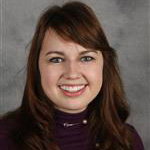
Jenna Londgren
Adjunct Faculty – Clinical Mental Health Counseling

Joshua Mears
Adjunct Faculty – Clinical Mental Health Counseling

Brian Shaffer
Adjunct Faculty – Clinical Mental Health Counseling
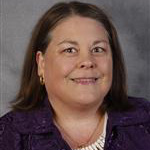
Anita Smith
Adjunct Faculty – Clinical Mental Health Counseling
Helena Stevens
Associate Professor – Clinical Mental Health Counseling
Next Steps
Interested in studying at Bethany? Scheduling a campus visit is a great way to see what we have to offer. You can meet professors or sit in on a class too! Contact our admissions office to learn more.
State Licensure Disclosure
Graduates of the CMHC Program are eligible to seek national certification and state licensure in many states, including Minnesota. Learn more about licensing by reviewing the CMHC section of the Professional Licensure Disclosures page.



